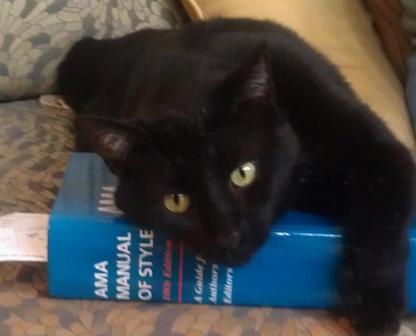Writers are often taught that masterful and masterly mean different things and to ensure that they are used correctly. Masterful, so such thinking goes, is taken to mean “suggestive of a domineering nature,” or “inclined and [usually] competent to act as master,”1 whereas masterly is used to denote “having the power and skill of a master.”1
However, the use of masterful to mean “skillful” is now widespread; as Bernstein, clearly a proponent of maintaining the distinction, pithily puts it, “masterly is never misused; masterful often is….”2 Moreover, it seems that the distinction has not always been observed. Whereas masterful has been used in the sense of “domineering” since the 1330s,3 it also was used to mean “skillful” as early as 1613.3 And whereas masterly was used in the sense of “skillful” since the mid 1600s,3 it also was used to mean “domineering” as early as the 1530s,3 although that use has been obsolete since the late 18th century.3
In short, both words have been used to indicate “skillful” since roughly the time of King James I of England. However, the idea that writers should distinguish between them is comparatively new1—and such a late addition of a distinction is the reverse of the more common case, in which a distinction between words ceases to hold sway as the language evolves.
The origin of the distinction? Merriam-Websters posits that it was “excogitated by a 20th century pundit”1—this “pundit” apparently none other than Henry Watson Fowler, editor of The Pocket Oxford Dictionary, coeditor of The Concise Oxford Dictionary and The King’s English, and author of A Dictionary of Modern English Usage.4 In the latter work, Fowler established a distinction between masterful and masterly that was taken up by authorities such as Bernstein2 and that continues to be trumpeted to this day.5 Fowler’s reason for introducing the distinction? Masterly has only 1 sense (at least since its use to mean “domineering” became obsolete), so masterful should be limited to a single sense as well.1
However, some also have argued for the use of masterful in place of masterly in adverbial constructions, pointing out that although masterly is properly used as an adverb as well as an adjective, its use as an adverb seems awkward, even incorrect; eg, “He paints masterly.”2 Moreover, masterly, like many words ending in “y,” is what Bernstein (who nevertheless advocates distinguishing between the words) calls a “reluctant” adverb—ie, a word that resists serving as or being turned into an adverb.6 To make matters worse, masterly takes another adverbial form, the admittedly horrid masterlily.
Where does this leave the conscientious writer? Like Fowler, several modern authorities deem the distinction a valuable one5 and often advocate recasting a sentence to allow a more mellifluous use of a reluctant adverb5,6: hence, the sentence “Its wooden gables… showed how masterly they had been carved of old”3 might be recast as “Its wooden gables… showed the masterly manner in which they had been carved of old,” or similar. “A retreat of this kind,” Bernstein maintains, “is better than clumsy bravado.”6
At least one like-minded authority, however, has conceded that the battle to maintain the distinction—whatever its merits—has likely been lost.5 The prevalence of masterful in everyday usage confirms that opinion, receiving further support from the fact that the words have developed in roughly parallel fashion over time.3 Merriam-Websters concurs, maintaining that masterful used in the sense of “skillful” “has continued in reputable use all along; it cannot rationally be called an error.”1 Moreover, it has been suggested that using masterful in its original sense might even confuse readers now accustomed to the use of masterful to mean “skillful.”7
The bottom line:
● Using masterful in place of masterly to mean “skillful”? You’re in good company, and that usage has a long history. However:
● Set on maintaining a distinction between masterful and masterly? You can’t go wrong there, either. True enough, some readers might be confused by the use of masterful in its original sense—but since when do writers shrink from using words correctly to avoid confusion?—Phil Sefton, ELS
1. Merriam-Webster’s Collegiate Dictionary. 11th ed. Springfield, MA: Merriam-Webster Inc; 2003:764.
2. Masterful, masterly. In: Bernstein TM. The Careful Writer: A Modern Guide to English Usage. New York, NY: Athaneum; 1985:269.
3. The Compact Oxford English Dictionary. 2nd ed. Oxford, England: Oxford University Press; 1991:1045.
4. Sheidlower J. Elegant variation and all that. The Atlantic Online Web site. http://www.theatlantic.com/past/docs/issues/96dec/fowler/fowler.htm. December 1996. Accessed September 16, 2011.
5. Masterful, masterly. Good English Rules! Web site. http://www.goodenglishrules.com/masterful_masterly.htm. Accessed September 16, 2011.
6. Adverbs, reluctant. In: Bernstein TM. The Careful Writer: A Modern Guide to English Usage. New York, NY: Athaneum; 1985:27.
7. Masterful vs. masterly. Grammarist Web site. http://www.grammarist.com/usage/masterful-masterly/. Accessed September 16, 2011.

